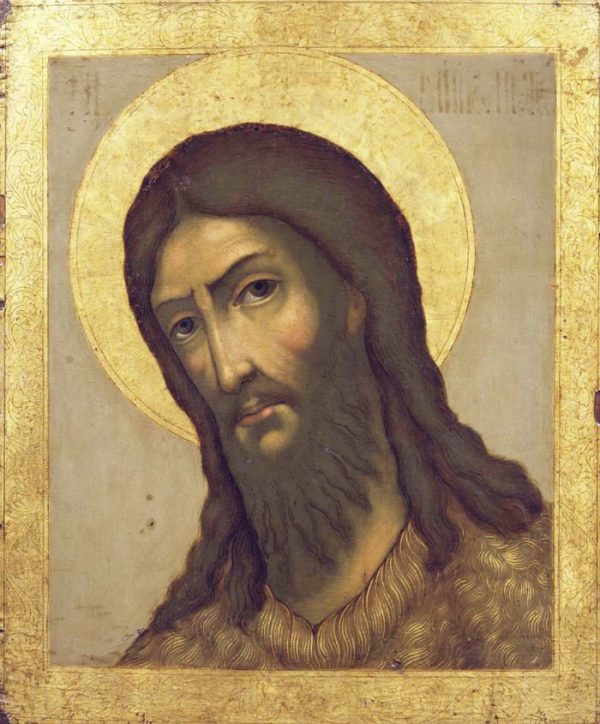Road construction is difficult work, especially where the terrain is rough, where hills are interspersed with lowlands. The general meaning of such work is clear even to a non-specialist: where the land is too low, the road must be raised, where it is too high, it must be lowered. When I drive through such beautiful places, I never cease to be surprised: how much knowledge and work the road builders put in there to make the track at least more or less even, without copying this convex-concave landscape. And every time the words from the Gospel about St. John the Baptist come to mind:
And he came into all the country about Jordan, preaching the baptism of repentance for the remission of sins; as it is written in the book of the words of Esaias the prophet, saying, The voice of one crying in the wilderness, Prepare ye the way of the Lord, make his paths straight. Every valley shall be filled, and every mountain and hill shall be brought low; and the crooked shall be made straight, and the rough ways shall be made smooth (Luke 3: 3-5).
Let every valley be filled, let every mountain and hill be brought low… At first glance, it may seem incomprehensible – what does this road-building principle have in common with the preaching of repentance?
However, for some reason it was precisely this image that God put into the mouth of the ancient prophet Isaiah, seven centuries before the birth of St. John the Baptist.
The purpose of St. John’s preaching was to prepare the people of Israel for the coming of the Messiah. What could prevent the Jews from meeting their King with dignity? What valleys and mountains had to be removed from the path of their salvation?
One’s sins hinder one’s salvation. But there are different kinds of sins. Some consist in a direct violation of the commandments of God, which is obvious to everyone, including the sinner himself. Drunkards, fornicators, thieves and covetous people know how much their life has deviated from God’s plan for them. And no matter how crushing the rampant passions may be in such people, in the depths of their hearts many of them are burdened by their sins, suffer from them and would like to leave them forever.
But there is also a more subtle version of a sinful life, when an outwardly pious person is so confident in his own righteousness that he does not feel any need for repentance at all. Both types of people came to St. John the Baptist.
To the first type, St. John the Baptist was very lenient and only explained how they should change their lives so that it becomes pleasing to God. But he angrily denounced the second type, called them snake’s children, and threatened them with God’s punishment. This did not mean at all that he loved the first and hated the others. It’s just that every disease is cured by its own medicine.
When people saw the depth of their fall, St. John explained to them how to fill their lives with good deeds. When people acted above their fellow compatriots (as did the Pharisees and Sadducees), because of their imaginary righteousness, St. John called them down from the hills of their own pride with harsh reproofs.
Thus, helping some to rise and preventing others from having a high opinion of themselves, St. John the Baptist prepared human hearts to receive the main revelation of God’s love for people – the coming of Jesus Christ.
Where the level was too low, he raised it. Where it was too high, he lowered it. Just like building roads through a difficult terrain.
Saint Ignatius Brianchaninov wrote about this arrangement of paths in the human heart as follows:
“The way of the Lord and His paths into the souls of men, the Holy Scripture names the corresponding way of thinking and heartfelt feelings. In order to acquire them, it is necessary to fill all the jungle, that is, in all low, impassable places, it is necessary to make mounds for the convenient coming of the Lord: it is necessary to abandon drunkenness, overeating, fornication, carnal pleasures, the so-called innocent games and amusements – in a word, everything that fleshly and sinful life consists of, reducing man to the dignity of senseless cattle and animals. We must replace them with opposite virtues: abstinence, sobriety, and chastity. A sinful and carnal life blocks the Lord’s way into the human heart.
Furthermore, it is necessary to humble or equalize every mountain and hill, that is, to blot out conceit and pride in all their forms from the soul, both in the seemingly significant and in the most petty forms.
Finally, it is necessary to reject all the wrong and willful concepts of faith, these obstinate and sharp paths, and to completely submit oneself to the teaching of God, preserved in integrity by the one Eastern Orthodox Church. Then all the curvatures will straighten, all the irregularities will be smoothed out: the path for the Lord will become completely free; every person will be conveniently saved. Salvation enters the soul together with the Lord when He enters it.”
Translated by pravmir.com
You can follow Pravmir.com on Twitter, Facebook, Instagram, or Telegram.

















